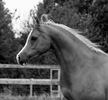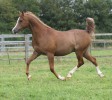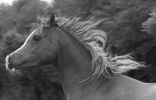| Author |
 Topic Topic  |
|
|
|
debs
Platinum Member
    
United Kingdom
3218 Posts |
 Posted - 19 Oct 2010 : 8:23:15 PM Posted - 19 Oct 2010 : 8:23:15 PM





|
I copied this from another forum....
HaThis article is written from the perspective of a mental health professional. It is a unique perspective. I think it is the most accurate article I've ever read on this matter.
I want people to get this straight up front, I am nothing saying that all training is abusive. So, don't acuse me of over generalizing. I'm not saying that all trainers are abusive. The ones I've been associated with were not.
I've bolded the paragraph that I think is the most concise and accurate statement of this issue that's been debated for ever.
Correct me if I'm wrong but I think Arabians are the only horses subjected to abuse in order to "show" in breeding classes. How the ###### can we allow this? How can we allow our humanity to be so degraded?
I hope this is a motivator. I hope this will motivate people to defeat yet another attempt to weaken the scoring system.
Dave
POST-TRAUMATIC STRESS DISORDER IN ARABIAN HORSES
Copyright by Rick Synowski 1994
Reprinted from The CMK Record
used by permission of Rick Synowski
The community of Arabian horse owners -- "the Industry" as we have come to call ourselves collectively -- has yet to face the far-reaching consequences in any genuine way of our treatment of the Arabian horse.
In the recent article "Observations" by David Murdoch, (Arabian Visions, January-February 1994), the author makes the statement that
"Abuse messes up the mind. That is the reason that wonderful young horse you sent off to be trained -- the one you foaled out in your arms and watched grow up -- comes back to you like a maniac."
Murdoch's statement strikes a chord. As an Arabian horse breeder and as a professional in the mental health field who has treated many human victims of abuse, I have been disturbed in particular by the long-term, even permanent psychological damage suffered by horses which have been traumatized in the course of training, competing, and by general mismanagement.
My 20 years experience in the mental health field includes treatment of children and adults who suffer from Post-traumatic Stress disorder, the debilitating disruption of the emotions, mental functions, and behavior which is a delayed or residual reaction to some prior catastrophic event. My observation of behavior in horses which had undergone extreme trauma, whether of human or natural cause, and the observation of other horse owners relating their experiences, indicates that horses have responses to traumatic experiences parallel to responses of people.
The disorder was earlier identified as shell shock in returning combat veterans of the two World Wars and the Korean conflict. The term Posttraumatic Stress began to be widely used as it was applied to returning Vietnam veterans who were found to have serious problems readjusting to civilian life and who suffered emotional disturbances, mental problems, and problems with their behavior which continued for an indefinite period after their return. The disorder was also identified in both children and adults who had suffered prior physical and sexual abuse. These people were often misdiagnosed and sometimes locked up in back mental wards because they were thought to have major mental illnesses, their symptoms being so severe at times.
The Diagnostic and Statistical Manual of Mental Disorders (the DSM), published and revised periodically by the American Psychiatric Association, is the diagnostic bible for the mental health field. The DSM IV, the latest edition, gives the most complete and definitive description of posttraumatic stress disorder (PTSD) to date. The following is an excerpt:
The essential feature of Posttraumatic Stress Disorder is the development of characteristic symptoms following exposure to an extreme traumatic stressor involving direct personal experience of an event that involves actual or threatened death or serious injury, or other threat to one's physical integrity; or witnessing an event that involves death, injury or threat to the physical integrity of another person. The person's response to the event must involve intense fear, helplessness or horror. The characteristic symptoms resulting from the exposure to the extreme trauma include persistent reexperiencing of the traumatic event, persistent avoidance of stimuli associated with the trauma, and numbing of general responsiveness, and persistent symptoms of increased arousal. The full symptom picture must be present for more than one month and the disturbance must cause clinically significant distress or impairment to important areas of functioning. Intense psychological distress or physiological reactivity often occurs when the person is exposed to triggering events that resemble or symbolize an aspect of the traumatic event. In rare instances the person experiences dissociative states that last from a few seconds to several hours, or even days, during which the components of the event are relived, and the person behaves as though experiencing the event at that moment (page 424.)
The lastly described reliving of the traumatic event or "flashback" is often reported by patients to be more painful or otherwise distressing than the actual event had been for them.
A personal horse-related incident which comes to mind as illustrative of a simple example of PTSD involves a situation brought about by a rider's misjudgment. My horse, as you will see, did not experience the trauma himself but merely witnessed the event.
During the 1970s when I was living in Marin County north of San Francisco, I spent many quiet relaxing hours riding my stallion on the miles of wooded, mountain trails and back roads. One particular Sunday afternoon we had passed two young women trail riding their horses. They left the main road to take a narrow side trail which circled around the other side of a nearby lake. It had not been long when I heard shouting from that general direction and turning found one of the riders galloping toward me. The other horse and rider had apparently slipped from a particularly treacherous part of the trail high above the lake. Luckily the rider had been able to jump free but the poor mare had slid further down the embankment and was caught under a downed log about fifty feet above the lake. We turned back to find the mare thrashing wildly to free herself. Just as we were about to reach her she struggled free only to go crashing end over end down into the deep water below. Once in the water the mare struggled for what seemed an eternity. At times she would appear to tire and then sink out of sight. Horrified, we stood helplessly on the bank: the two riders, myself, and my stallion. Eventually she was able to make her way close enough to the bank to touch bottom. At that point we were able to wade into the water and slip a rope over her head and pull her to the shore. She was able to get up on her own legs and staggered out of the water, the heavy, waterlogged stock saddle still on her back. Amazingly she had escaped serious physical injury. My stallion stood trembling, his attention riveted to the mare during the entire ordeal. When she emerged from the lake I had allowed him to sniff her, as a mare will do with a foal which has become upset or separated. On the ride home however, he seemed spooked and fretted all the way. After that day he would take to shying when I attempted to ride him near the edge of a lake, even on trails which were familiar to him and which had not posed a previous problem. His behavior did not generalize to fording streams or crossing bridges over streams, which he did with little fuss.
A horse's response to real or perceived danger is either "fight or flight." This is an instinctive survival response, as it is in people. Like people, horses will, when not physically able to fight or escape, attempt to leave the situation psychologically, and will dissociate. Horses dissociate in response to immediate trauma (this is sometimes associated with and symptom of shock), but I have seen them dissociate in response to a triggering stimulus associated with prior trauma. A horse in a dissociative state will seem to take leave of his senses. He may seem to be in another world and unaware of his immediate surroundings. If highly aroused he may be dangerous, to others or to himself. I had acquired another stallion who I had found in a starved, emaciated state. I was told he had been beaten. He was a gentle soul but when he became distressed he would weave with a vengeance and at times appear to go into a trance-like state, eyes glazed over. This behavior diminished in time but never disappeared.
Horses by nature are highly social, gregarious animals. The species evolved to live within a social group as its primary means of survival. Separation from the group often meant death from predators or from lack of experience in coping with other threats in its environment. The Bedouins bred horses these past thousands of years which were purposefully developed to generalize their social needs and responses to people. This resulted in the characteristic horse to human bond for which the Arabian would become a legend. Separation from horse or human companions can be stressful and traumatic. Separation and forced readjustment to unfamiliar, alien surroundings occurs as a matter of course to most horses, especially those shuffled from one owner to the next.
Such was the story of the great *Serafix, imported from the Crabbet Stud in England to California by John Rogers. The young *Serafix became so homesick after his arrival that he refused to eat. It was thought he would die, the situation was so serious. Finally, Rogers himself moved into *Serafix's stall to provide round the clock companionship to bring the horse out of his nearly fatal slump. Happily most horses do not experience adjustment problems as severe, but it is not uncommon that horses are never able to completely adjust. Many develop abnormal behaviors such as stable vices or other irksome or even dangerous habits -- coping mechanisms used to adapt to the fallout of traumas we owners seldom even notice, which includes isolation from familiar companions and adjustments to unfamiliar surroundings.
Human caused trauma seems far more debilitating to people than is trauma from natural events such as floods, fires and earthquakes (DSM IV, p. 424). Arabian horses, with their strong natural affinity for people, are especially vulnerable to the devastation of human-perpetrated abuses. Deliberately inflicted trauma, usually meted out as corporal punishment, is the most frequent cause of PTSD in horses -- especially horses trained for competitive events. In Arabians, it is most commonly associated with halter training and showing, but it occurs on some level in all kinds of competition. We certainly are not talking about reasonable discipline or correction here -- with alarming frequency we go over that lline of discipline to outright abuse, and perhaps some of us do not even know when we have crossed that line. Where trauma does not involve punishment, it occurs in horses which are in physical pain and continue to be worked. Sometimes the horse does not even protest. Too often they are anesthetized and continue to reinjure themselves or worsen present injuries. Such practices result in suffering extending beyond the reach of painkillers and which often develops in chronic ailment. Working lame horses is cruel and inhumane, but far more insidious and even more common is the forced work of horses with musculoskeletal pain arising from trauma to the spine. These injuries result from the forced collection of young horses for prolonged periods and are aggravated by use of mechanical devices such as martingales, tie-downs, and draw reins. These appliances may actually be misused to correct horses which are already hurting from spinal problems, shown by resisting collection and going above the bit. We add more pain to an already hurting horse without a clue as to what we are doing. Little wonder these horses develop bad attitudes and other evasive or even violent behaviors which continue long after the pain itself may have subsided.
Whip abuse is the most often decried of the abuses to which the Arabian is almost universally subjected, owing to the high arousal state in which the Arabian is forced to be shown. People who believe the decline of whip abuse seen at the shows reflects that abuse is on the decline are gravely deceived and have little understanding of the use of the whip as a trigger to call up past abuse. One does not even have to use a whip as a trigger -- the response may be elicited by a hand signal or gesture of the upright arm, or a verbal cue like the "shush" or clicking one hears in the ring. Just like the salivation of Pavlov's dogs when the bell rang, halter horses are conditioned to become highly aroused and to exhibit the fight or flight behaviors given the threat of harm -- or the memory of harm.
These responses include the tightening of muscles and exaggerated posturing and movement common to many other species when confronted with danger. Posttraumatic Stress Disorder is not merely an effect of halter training; it has become the method itself, employed deliberately to elicit the response we demand in the show ring. Since the abuse need not occur at the time the response is triggered, it need not be repeated in the ring or even at the show. It does not take a rocket scientist to realize that holding horses in paddocks at shows to be observed and inspected by stewards is little more than a charade.
The effects of conditioning by pain or fear of pain result in a variety of responses which may become long-term or permanent and usually generalize to other people, including their bewildered owners. I have heard more than one sad story from an injured owner who was attacked by their own horse they got back from the trainer -- the horse they raised and thought they knew. One never knows what will trigger an aggressive reaction in what seem like otherwise gentle, sensible horses. And, one learns never to put one's own guard down with them. These behaviors may subside in time but one cannot predict whether they will ever go away entirely.
Depression is another effect of abuse. These horses seem to suffer mental breakdowns. They become listless and withdrawn and non-responsive to their surroundings. We see this so often in show horses that I doubt we pay much attention to this kind of response. Once returned to hearth and home and to familiar companions these symptoms seem to subside in about six months to a year.
Of course, horses suffer a variety of physical ailments due to the effects of PTSD, just like humans do. Immune systems become depressed. These horses are much more prone to colic and other digestive upsets. This is not news to the insurance industry which has limited liability, raised premiums, or even refused to insure horses where abuse of one kind or another has become commonplace.
A bizarre and little understood response to abuse is the perverse kind of loyalty, and in extreme cases, affection the victim occasionally develops toward the perpetrator. This had been first observed in some victims who had been interned and tortured as POWs. I can remember my own bewilderment and frustration years ago working with a woman who had been repeatedly beaten by her husband, but who remained loyal to him, even to the point of raising his bail when he was jailed for sending her to the local emergency room with injuries.
Charles Craver brought to my attention his observations of horses which, having suffered abuse, seemed to develop the same kind of bond to their abuser. Craver's observation brings to mind my visit to an Arabian breeding establishment some years ago and watching the trainer bring out one of the much publicized stallions. The horse was agitated and repeatedly lunged at the trainer, mouth open and ears flat back. It was obvious the stallion regarded the trainer with hatred and the trainer displayed no little skill to dodge the attacks while presenting the horse to guests. Imagine my shock when I learned years later of the special rapport these two were touted to have.
When a handler gives a horse a loving pat and the horse appears to respond, it is no guarantee that the handler hasn't abused that horse to within an inch of its life back at the barn to earn that pat. I witnessed such an incident in the show ring one year. When it was announced that a particularly lovely young mare was chosen as the champion, her handler jubilantly threw his arms around her neck as though she were the love of his life. The mare was dazed, seemingly disoriented, and confused as she stood trembling to receive her accolades.
In his article, Murdoch cites owners as coresponsible with trainers for abuse, as we have the ultimate responsibility for the welfare of our own horses. Owners may plead ignorance and may well indeed be unaware of the abuses their horses suffer when under the care of someone else, or which they themselves inflict unwittingly. But the causes of ignorance are less the lack of accurate information than the lack of genuine concern which comes from the heart and conscience rather than that to which one pays lip service only. It really comes down to not putting the horses first.
--------------------------------------------------------------------------------
GLOSSARY OF TERMINOLOGY
Dissociative States: Any mental state in which an individual seems to lose contact with his immediate surroundings. Day-dreaming is a common and normally harmless dissociative state most of us experience at one time or another. In more severe instances, an individual may suffer amnesia (blackouts), confusion, disorientation or even psychosis.
Generalized Response: Any response which is learned in one context or situation and is repeated in a similar context or in response to a similar stimulus.
Increased Arousal State: Psychologically any state of intensified emotion (anger, fear, anxiety, excitement) and awareness (hypervigilance). Physiologically, increased arousal states are characterized by rapid heart beat and respirations, increased adrenaline release, and other indicators of increased metabolism.
Trigger: An event, circumstance, or object which resembles, or is symbolic of a previous traumatic event and which causes the victim to respond as if he were reliving the event.
|
    |
|
Report to moderator
|
|
|
Pashon2001
Platinum Member
    

3575 Posts |
|
|
barbara.gregory
Platinum Member
    
United Kingdom
4531 Posts |
 Posted - 20 Oct 2010 : 09:46:02 AM Posted - 20 Oct 2010 : 09:46:02 AM





|
I too have read this previously and at present there is a long thread on another forum. Sadly we seem to hear all this every year after the shows and it just goes in a circle and nothing changes.
Look at who sends their horses to abusive trainers; they are just as much to blame as the trainers. Anyone who sends their horse to a trainer knowing that it will be abused is perpetuating the abuse so let's point the finger at them and not just the trainers.
Barbara |
    |
Report to Moderator  |
|
|
SueB
Platinum Member
    

United Kingdom
3218 Posts |
 Posted - 20 Oct 2010 : 10:07:54 AM Posted - 20 Oct 2010 : 10:07:54 AM






|
Everyone keeps on about abusive trainers but who will point the finger and at who?
It's a very difficult subject and one that any finger pointing could be pointed at the wrong person.
I keep reading so and so trainer is cruel, but is that so or has that person been seen maybe once doing something only once that one onlooker thought bad. The whole thing to do with trainers is fraught with problems and cases of slander hanging over anyone who dares to speak out.
I could or would never use any trainer I had any doubt was not a true horse lover and caring person but not every owner thinks the same.
I think this problem will never go away all that could be done is to tighten rules and abide by them at shows. Again pleading with complainant's to make their complaint at the show on the day.
To keep using the Internet to slander is not helpful to the poor horse, any true horse lover would get off their bum and act at the time and on the day of the show. |
Report to Moderator  |
|
|
Pop
Platinum Member
    

England
3051 Posts |
 Posted - 20 Oct 2010 : 10:11:36 AM Posted - 20 Oct 2010 : 10:11:36 AM





|
| Why would someone send their horse to a trainer known to be abusive? |
      |
Report to Moderator  |
|
|
SueB
Platinum Member
    

United Kingdom
3218 Posts |
 Posted - 20 Oct 2010 : 10:28:26 AM Posted - 20 Oct 2010 : 10:28:26 AM






|
I think part of the problem is an owner not knowing a trainer is a bad egg. Some owners maybe have little 'horse' experience themselves so know no better.
You need to look at the time your trainer has with your horse, watch them at shows and watch the interaction between them and a horse. You can see a horse that is afraid of it's trainer, although saying that some horses are incredibly nervous and might exhibit fear just for the crowds, I personally wouldn't show such a horse.
Don't be afraid to ask owners about their trainer and how they perceive them with relation to their own horse.
It's a minefield for those owners who are unsure but just keep asking questions and never be afraid to do so. |
Edited by - SueB on 20 Oct 2010 10:29:24 AM |
Report to Moderator  |
|
|
Zan
Platinum Member
    

Scotland
3213 Posts |
|
|
debs
Platinum Member
    
United Kingdom
3218 Posts |
 Posted - 20 Oct 2010 : 8:59:23 PM Posted - 20 Oct 2010 : 8:59:23 PM





|
Hear hear....
If there was any doubt about a trainer, just a whisper, I'm sorry there is no way my horse would be going there.
Saying that, I dont show and probably never will, if I do I think I would be showing my pony, or my pal would!
And for the record if I saw any abuse at a show, there is no way I would ignore it.
Good advice Sue |
    |
Report to Moderator  |
|
|
numbbum
Silver Member
  
363 Posts |
 Posted - 21 Oct 2010 : 3:17:46 PM Posted - 21 Oct 2010 : 3:17:46 PM





|
| Fantastic article. Thanks for the posting. |
Report to Moderator  |
|
|
shah
Gold Member
   
England
1356 Posts |
 Posted - 22 Oct 2010 : 11:23:24 AM Posted - 22 Oct 2010 : 11:23:24 AM





|
| It is a great article, I found it too recently when doing research on chronic stress in horses. My lad suffers from something like this. He's not x-show but x-race and I don't think he's problems stem from the training per se, more the early management, as he has severe anxiety problems. My worry is how do you handle it, how do you cope with it, and as I realise from the article that it can never be cured, how do you help the horse to deal with it? Very tough questions and not many answers. |
West Sussex |
Report to Moderator  |
|
| |
 Topic Topic  |
|
|
|

